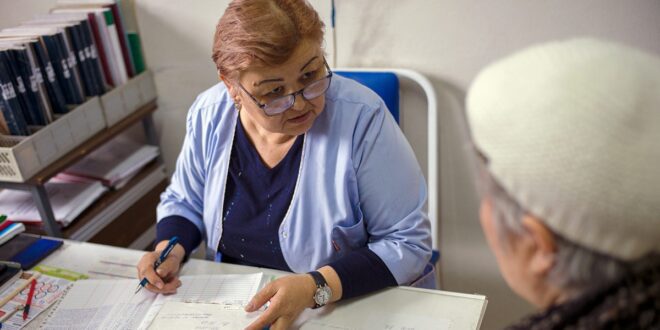WHO/Europe’s Roadmap for Health and Well-being in Central Asia: Progress and Priorities
WHO/Europe’s Roadmap for Health and Well-being in Central Asia has recently advanced through a series of national and subregional high-level policy dialogues in Kazakhstan, Tajikistan, and Uzbekistan. The dialogues aimed to address the root causes of ill health and push forward with health system reforms in Central Asian countries.
Identifying Areas for Improvement
Over a period of two weeks, the policy dialogues identified key areas for improvement, including access to medicines and mental health reform at the subregional level, as well as health financing and human resources for health at the national level in Tajikistan.
“The Central Asian subregion is a key pillar of our work at WHO/Europe, and at the heart of our European Programme of Work’s ambition to support countries on their path towards universal health coverage and leave no one behind,” said Dr. Natasha Azzopardi-Muscat, Director of WHO/Europe’s Division of Country Health Policies and Systems. “These policy dialogues explored concrete solutions to shared challenges, ranging from ensuring people can access the medicines they need to make mental health services more easily accessible to everyone.”
Reaffirming WHO/Europe’s Commitment
Access to essential medicines is a fundamental human right, but the cost of these medicines can be prohibitive. The first subregional dialogue discussed how to procure cost-effective medicines, and looked at the impact of out-of-pocket payments on public and personal budgets.
The second subregional dialogue focused on mental health, discussing ways to improve mental health services and support in Central Asia. It emphasized the importance of integrating mental health into primary care, promoting community-based care, and reducing stigma and discrimination against people living with mental health conditions. It was also an opportunity for the WHO/Europe mental health flagship team to meet with the delegations of each of the five participating countries.
A shortage of trained healthcare professionals is another major challenge in many countries, particularly in Central Asia. According to WHO/Europe data, the subregion has fewer health workers per capita than recommended. This shortage can significantly impact the quality of care and access to health services, particularly in remote and underserved areas.
The national dialogue in Tajikistan looked at concrete solutions to these challenges in the country, and coincided with the launch of the first-ever national health labor market analysis. The analysis presents a clear picture of the current availability, distribution, and education of health workers. It is expected to lead to the development of a strategic plan to strengthen the health workforce in Tajikistan.
Senior Officials from WHO/Europe Meet with Ministers of Health and Finance
Throughout the dialogues, WHO/Europe senior officials met with Ministers of Health from Kazakhstan, Kyrgyzstan, and Uzbekistan, as well as Ministers of Health and Finance from Tajikistan. Visits to health facilities also provided a better understanding of local health needs for which support is most urgent.
“Across the subregion, we are seeing important progress in these areas affecting the health of millions of people,” Dr. Azzopardi-Muscat explained. “At the same time, we see where more work needs to be done. WHO/Europe remains committed to supporting governments and national authorities as they reform their health systems in this crucial post-COVID-19 recovery phase.”
Building on Health Goals and Priorities
The WHO/Europe Roadmap builds on the health goals and priorities of the five Central Asian republics – Kazakhstan, Kyrgyzstan, Tajikistan, Turkmenistan, and Uzbekistan – through the lens of the WHO European Programme of Work. Since the launch of the Roadmap, WHO/Europe has provided concrete support to the subregion across a wide range of health issues. With this new series of policy dialogues, WHO/Europe highlights areas for health system strengthening.
Locations of Policy Dialogues
The subregional dialogue on access to medicines took place in Almaty, Kazakhstan, and was co-organized with the European Observatory on Health Systems and Policies. The subregional event on mental health services was held in Tashkent, Uzbekistan. The national policy dialogue on the health workforce was held in Dushanbe, Tajikistan.
 Mind Uncharted Explore. Discover. Learn.
Mind Uncharted Explore. Discover. Learn.


